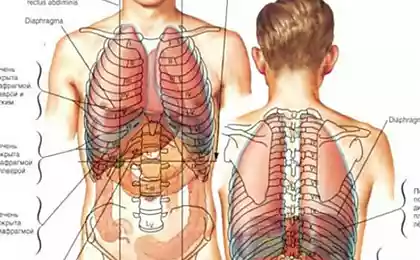599
A guide to psychology. Issue 2. The Power of Emotions: How to Recognize and Understand Your Feelings
List of all articles in the cycle
Description: This article explains how to recognize and understand your emotions. The author considers the meaning of feelings and offers practical techniques for their conscious perception and expression.

Introduction
Everyone knows what joy, sadness or fear is. But how often do we really think about the nature of these experiences?
Emotions can be a powerful source of energy - to inspire us to exploits, sharpen our intuition and encourage change.
At the same time, they can paralyze the will and cause uncertainty if we do not know how to understand our own feelings.
The power of emotions is not an exaggeration: they shape how we relate to the world and influence our decisions.
Which we take every day.
In the continuation of our series of articles on psychology, we invite you to immerse yourself in the amazing world of the emotional sphere.
The main purpose of this article is to show that the recognize and understand feelings
It is the key to a harmonious life. We will discuss why emotions play such an important role in a person’s existence, and how practical techniques of emotional self-regulation will help you maintain inner balance even in stressful situations.
What are emotions?
From a scientific point of view, emotions are complex mental processes that reflect our subjective attitude to what is happening.
These include physiological reactions (frequent heartbeat, changes in breathing), behavioral manifestations (facial expressions, gestures), and internal psychological experiences (feelings of joy, resentment, or fear).
According to Wikipedia, emotions often serve as “signals.”
It helps us adapt to the outside world.
Classical studies highlight several “basic emotions,” including: joy. sadness.
fear. anger. surprise and loathing.
However, modern psychology indicates that a person experiences much more nuances of feeling.
Complex emotions and combinations (such as nostalgia, excitement, jealousy, and others)
They make the inner life extremely rich.
Emotions are intimately linked to the brain and our nervous system: through the workings of structures like the limbic system, we can respond quickly and powerfully to dangers or pleasures. For example, an instantaneous adrenaline rush provides a quick response to a threat. But if the response is too intense or uncontrollable, we run the risk of negative consequences – conflict, fatigue, or guilt.

Why is it important to understand your feelings?
Many people do not pay enough attention to their emotions, considering them something secondary or too intimate.
However, psychological studies show that emotional intelligence The ability to recognize, understand and manage your feelings is one of the key factors in success and well-being in life.
Here are a few reasons why emotional awareness is so important:
- Healthy relationships. If you understand how you feel, it is easier to explain it to loved ones.
This way, you will avoid misunderstandings and be able to build more harmonious communication. - Stress management. Awareness of the sources of emotional stress helps to take action in time: take a break, seek advice, apply relaxation techniques.
- Personal motivation. Emotions are the driving force. Anger, for example, can give us energy to fight injustice, and joy stimulates us to achieve new goals.
- Self-defense. By understanding emotions, you better notice toxic situations and set personal boundaries in time, preventing negativity from escalating into chronic stress or burnout.
Psychological health and relationships with others.
How to Recognize and Understand Your Emotions
Self-observation
The first step to recognizing emotions is learning to observe your reactions in real time.
You can start with small pauses for reflection. When you feel that something is wrong: your heart is beating, your palms are sweating, your breath is lost, ask yourself, “What am I experiencing right now?” Why?
Sometimes even a simple fixation of the fact, “I’m angry” or “I’m upset,” helps to take control of the situation.
Lead. notebook. At the end of the day, write down three or four vivid situations, describing exactly how you felt and how you felt throughout the day. Gradually, you will begin to see patterns: which events cause you stress, and which are joy or inspiration.
Verbalization of feelings
To understand how we feel, we need to be able to talk about it. Some people are faced with alexithymia A condition in which it is difficult to describe your emotions in words. However, even in this case, it is possible to develop the ability to "pronounce" feelings.
Try to find exact terms, for example: instead of “I feel bad,” say “I feel anxious” or “I feel sad.”
Such detail helps to understand the depth of experiences and build the right strategy for responding to them.
Learn to distinguish between complex feelings
Often in the same situation, we experience several emotions at the same time – for example, a combination of resentment and guilt, or joy and sadness. It's normal. However, if we do not learn to distinguish between these “complex” states, we may blame ourselves or others without understanding the real causes of the conflict.
Carefully analyze: “I am angry with a friend, but I also feel guilty because I did not keep my promises.”
By acknowledging the duality of feelings, you can act in a more balanced way: by apologizing for your part and explaining to a friend why you are offended.

Emotional regulation strategies
The ability to recognize emotions is helpful in itself, but the next logical step is to learn. manage These emotions, so as not to fall under their power. Here are some strategies to help you engage with feelings more consciously:
- Stop-frame technique: When the emotion suddenly goes off the scale, imagine that you put the video on pause.
Give yourself a few seconds for breathing exercises: deep breath through the nose, exhale through the mouth.
This gives the brain time to “reset.” - Recasting of the situation: If something makes you anxious, try looking at it from a different angle.
Ask yourself, “What if this is an opportunity?” What good can the situation bring? ?
Negative emotions can be transformed into motivation. - Seeking support: Sometimes the best strategy is to discuss your feelings with someone you trust: a friend, loved one, or psychologist. The social environment can help broaden the view of the problem.
- Physical activity: A simple walk in the fresh air, exercise or yoga can relieve accumulated tension and restore emotional balance.
- Creative approach: Drawing, music, or writing (such as recording your feelings) are great ways to let off steam and channel the energy of emotions into a creative channel.
Conclusion
Emotions are a fundamental part of our personality and a major driving force in decision making.
They can inspire us, force us to act with enthusiasm and courage, or, conversely, block development and increase stress.
The key to working with the emotional sphere is the ability to recognize and accept the feeling at the moment it is born.
Only then can we use the energy we receive or, on the contrary, reduce its destructive potential.
As part of this issue, we discussed why it is important to understand your emotions and looked at the basic tools for regulating them.
However, emotional intelligence is a deep concept that includes not only the ability to self-observe, but also the ability to capture the emotions of other people, find the right approach to them and form healthy relationships.
In the following articles, we will continue to expand our knowledge of human nature by addressing important aspects of behavior.
thinking and social dynamics.
Let the “power of emotions” become a true ally for you on the way to self-understanding and harmonious life. Remember: thanks to this knowledge, we can live more consciously, build linkage To overcome the internal barriers that prevent us from being truly happy.
Glossary
Emotional Intelligence (EI)
The ability to recognize one’s own emotions and those of others, manage them effectively, and use them in communication.
Alexithymia
Difficulty identifying and describing one’s own emotional states; a person with alexithymia experiences emotions but has difficulty understanding them.
limbic system
The complex of brain structures responsible for emotions, motivation, memory and behavior.
Emotional self-regulation
The ability to manage the intensity and expression of one’s emotions while maintaining an adequate perception of reality.
Recasting
A cognitive technique that allows you to look at a situation from a new, more positive or neutral point of view.
A guide to psychology. Class 1. Hello, Human World: A Basic Introduction to Psychology
A guide to psychology. Issue 3. Words and gestures: the foundations of effective communication























